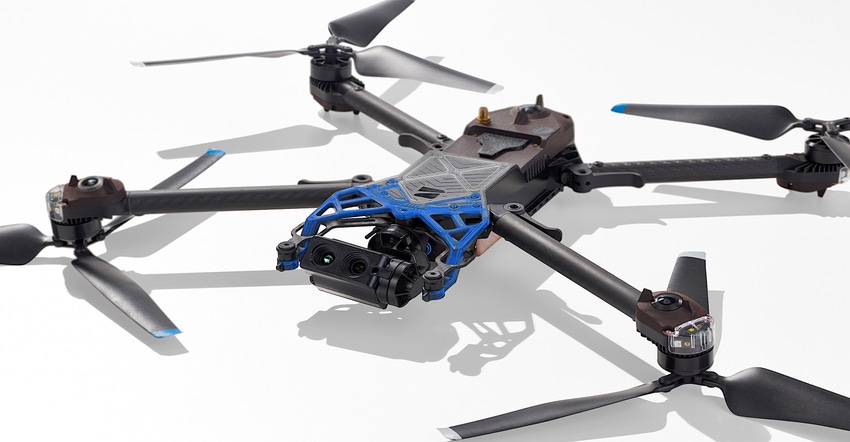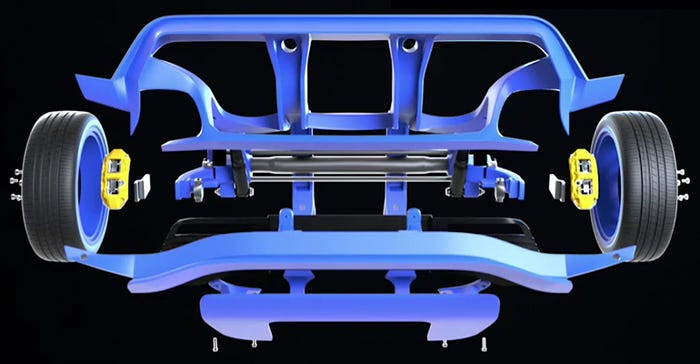Bio-Metal Is Stronger and Lighter Than Titanium With 50 Percent Renewable Resin
Today's bio-metal composite drone camera mount technology is tomorrow's implantable bone replacement material.

Arris Composites’ Additive Molding Technology has already demonstrated its ability to meld the strength of carbon fiber with the manufacturing speed of injection molding, but now the company is targeting metal applications with a new product it calls Bio-Metal.
The “bio” portion of the material comes from Arris’s use of 50 percent renewable and recyclable resign in the products it makes with this new material. The result is a non-metallic carbon fiber composite, but Arris dubs it Bio-Metal because it is stronger and lighter than titanium.
A development challenge has been increasing the amount of renewable material that can be blended into the resin for Bio-Metal because the renewable resin has different characteristics from the traditional petroleum-based resin. “What we have seen is that this steady progress upward has gotten to a place where it can be a meaningful portion,” explained Arris Composites CEO Ethan Escowitz. “The challenge with most biomaterials, any time you time to drive it too high, you take a performance hit that customers won’t use." The material is a bio-based composite for metal replacement.
Escowitz described an unpleasant personal experience with dog clean-up bags made of plastic that is biodegradable. Unfortunately, he found the bags start breaking down while he was still using them!
With a 50 percent blend, Arris has found satisfactory performance for its Bio-Metal, which is now in use for consumer goods like the Skydio drone’s camera mount bracket, an application where lightness and strength are at a premium. These uses will accelerate the production of Bio-Metal while Arris continues to develop for additional markets, he said.
“Medical is a really interesting space,” Escowitz stated. Is replacing material like titanium for human implants an ideal use for this technology? “This material is peak carbon fiber. It is implantable grade,” he said.
No only is it good enough for use in patients, but carbon fiber’s characteristics make it better for implants than titanium. “It has a bunch of advantages. When you X-ray where you have surgeries they want to be able to see very well to make sure there are no infections. With composites, you can see the joint in x-rays.”
Not only that, but titanium implants can be too stiff in some ways, and Arris’s Bio-Metal can be a superior substitute for bone. “It better mimics the modulus of bone,” said Escowitz. “It's a more compliant material that behaves more like bone.”
Medical implants aren’t an area where we want to skimp to save money, but at the same time, medical costs are extravagant, so if Bio-Metal can make implants less expensive, that’s beneficial. “The feedstock material is incredibly expensive for medical-grade material,” Escowitz noted. “They’re machining that away today to make the parts.”
While Arris is actively pursuing medical device opportunities, the company recognizes that medicine is not its area of expertise. “The main thing is that we are looking for partners that would commercialize the space,” Escowitz said.
Meanwhile, the company is looking to move from consumer products like drones and into other volume markets, such as auto parts, where Bio-Metal can be used for products like bumpers and crash structure, where its high strength and light weight are helpful.

About the Author(s)
You May Also Like





